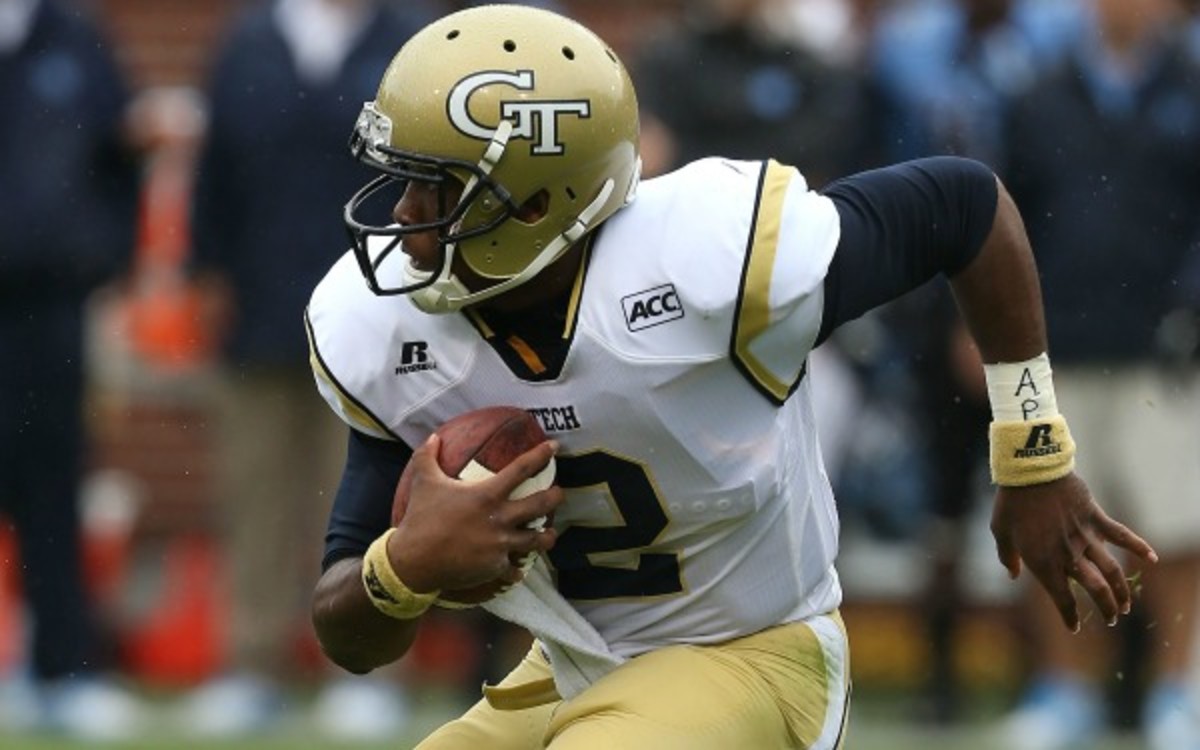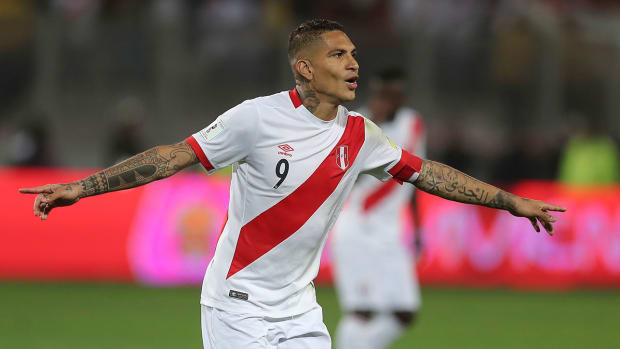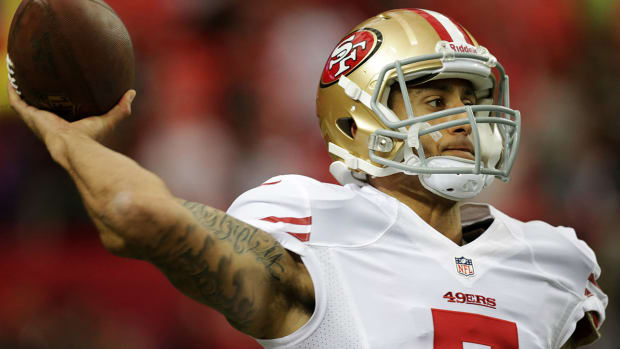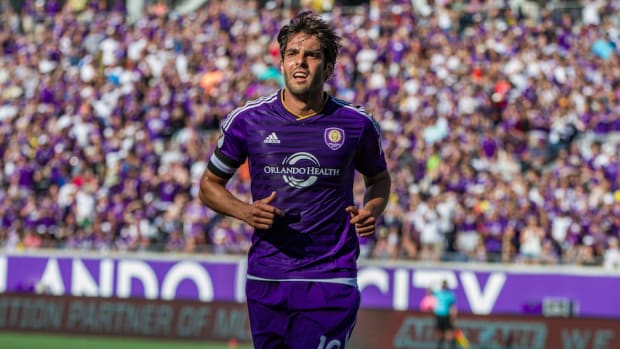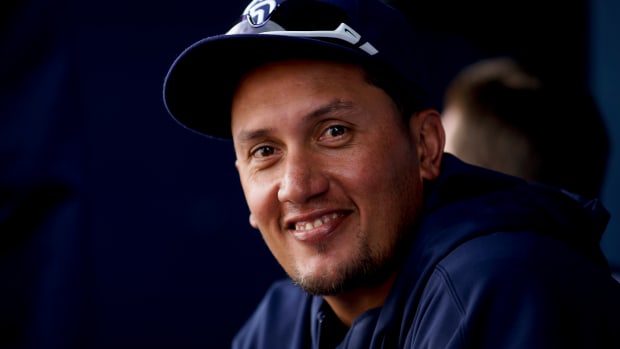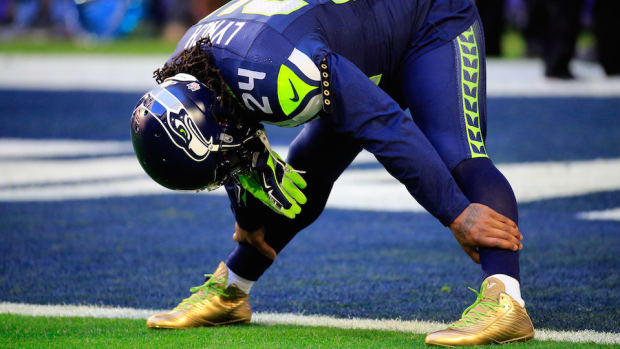Georgia, Georgia Tech football players mark gear with 'APU' in protest of NCAA
Georgia Tech QB Vad Lee wrote "APU" on his left wristband as part of the organized "All Players United" protest. (Mike Zarrilli/Getty Images)
A group of college football players took the field on Saturday wearing gear marked with the letters "APU" -- All Players United -- as part of an organized protest of the NCAA's treatment of athletes, according to ESPN.com's Tom Farrey.
In addition to player compensation, health and safety issues related to concussions are the main concerns of the protesters, which included Georgia and Georgia Tech players during nationally televised games.
The effort was "months in the making," National College Players Association president Ramogi Huma told ESPN, who added that "high-profile" players on other BCS teams have expressed interest in participating, as well.
On Saturday, Yellow Jackets quarterback Vad Lee and running back Synjyn Davis, as well at least five Bulldogs offensive linemen, were among the participants, writing "APU" on their wrist tape.
From ESPN.com:
Huma said players plan to continue to use their visibility on nationally televised games to draw attention to the effort, associated with the social-media hashtags #APU and #AllPlayersUnited.
"Players will continue to wear the APU throughout the season and spread the word," Huma said. "They're taking the reform effort to television, which has never been done. They've been using their bodies to make money for the people who run NCAA sports. Now, for the first time, they're using their bodies to push for basic protections at the very least."
The #AllPlayersUnited campaign's goals, according to NCPAnow.org, include:
• Demonstrate unity among college athletes and fans in favor of NCAA reform.
• Show support for players who joined concussion lawsuits against the NCAA, which could "force the NCAA to finally take meaningful steps to minimize brain trauma in contact sports and provide resources for current and former players suffering with brain injuries."
• Show support for the players who "stepped up in the O'Bannon v. NCAA, EA Sports lawsuit regarding the use of players' images/likeliness, which could unlock billions of dollars in resources for current, future, and former players."
• Stand behind individual players being "harmed by NCAA rules."
Arian Foster admits in documentary he took money at Tennessee
ROSENBERG: For better or worse, inequities, scandals part of college sports fabric
